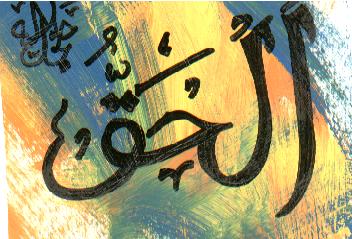Devout See Quake as Test of Faith
By TINI TRAN, Associated Press Writer 2 hours, 43 minutes ago
BALAKOT, Pakistan - On prayer mats set atop the roof of one flattened mosque, the men bowed their heads in silence, seeking solace amid the rubble. For devout Muslims in this quake-ruined town, it was the first time Friday prayers were held since last weekend's devastating quake. They came by the hundreds — some carrying shovels, some wearing face masks — all looking for spiritual comfort.
"God is angry with me, but I cannot be angry with him," said Fazlur Rahman, 67, who lost his daughter in the disaster. "This is a test of my faith. I have nothing else."
His weather-beaten face crumpled with pain as he talked about his 25-year-old daughter, Shaziya, who was buried under the debris when their home buckled under the 7.6-magnitude quake, which killed at least 35,000 people.
"She had asked me to bring her something to eat. I walked away only a moment when everything collapsed. She didn't even have time to cry out. I rushed back to her and shouted her name, but there was no reply," he said, thrusting his scarf into his mouth to muffle his sobs.
He came alone to the Syed Ahmed Shaheed Mosque, now a pile of twisted pylons and smashed concrete on the banks of the Kunhar River.
"The prayers satisfy me," he said. "They lessen my pain."
In Balakot, a town of about 60,000 largely leveled by the quake, survivors have little else to cling to but their faith. Once a picturesque spot at the foot of the mountains that drew local tourists, the town has few buildings standing whole and none of its mosques left.
Despite the devastation, the devout arrived in the hundreds for Friday prayers.
Just on the other side of the river bank, several hundred men gathered at a girls' religious school which had been transformed into a temporary mosque to hear the black-turbaned Imam Qazi Khalil, 60, give the noon sermon.
Relief workers, some still in uniforms, joined with residents and refugees from other areas in the region in bowing to the ground in prayer during the hour-long services, interrupted by the sound of relief helicopters shuttling through the air.
Afterward Khalil explained that the earthquake was meant as a punishment from God because of people's failure to follow a spiritual life.
"It was an _expression of God's wrath. We have to mend our affairs, particularly our character," he said. "All the happenings around us — the tsunami, Hurricane Katrina — all are part of God's wrath."
Khalil said troubled times are meant as a test for the devout. But he urged survivors to take comfort in their faith.
"We should study the Prophet's life to guide us. Patience and tolerance are critical so that people can pass this crisis time in a better way. I lost my own son, my daughter-in-law and my grandson. (But) I have accepted the tragedy. It's a test from God," he said.
His listeners appeared to have taken his words to heart, some coming up to hug him and offer condolences for his personal loss.
With his nose and forehead still smudged from the dust, Ghulam Gilani said he still believes in God, despite the deaths of his brother and neighbors. His own family escaped unscathed though they lost their home.
"We are living under the naked sky for now, but at least we are alive," the 65-year-old farmer said.
Mohammed Amir, a 34-year-old refugee who arrived in Balakot after a two-day hike from the northern town of Mansehra, listened intently to the sermon. Standing up afterward, he recounted how he lost his brother and his sister-in-law as the earth heaved last Saturday.
"I am deeply grieved over this. Ordinary people must grieve but they have to obey Allah's decisions. Such calamities bring Muslims closer to God and increase our faith," he said.


0 Comments:
Post a Comment
<< Home